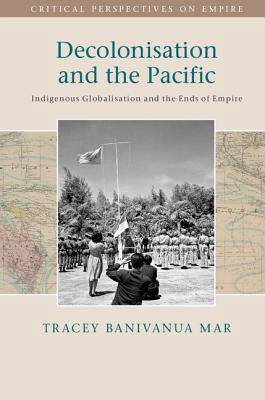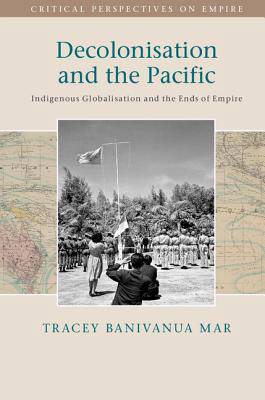
Door een staking bij bpost kan je online bestelling op dit moment iets langer onderweg zijn dan voorzien. Dringend iets nodig? Onze winkels ontvangen jou met open armen!
- Afhalen na 1 uur in een winkel met voorraad
- Gratis thuislevering in België vanaf € 30
- Ruim aanbod met 7 miljoen producten
Door een staking bij bpost kan je online bestelling op dit moment iets langer onderweg zijn dan voorzien. Dringend iets nodig? Onze winkels ontvangen jou met open armen!
- Afhalen na 1 uur in een winkel met voorraad
- Gratis thuislevering in België vanaf € 30
- Ruim aanbod met 7 miljoen producten
Zoeken
€ 172,95
+ 345 punten
Uitvoering
Omschrijving
This book charts the previously untold story of decolonisation in the oceanic world of the Pacific, Australia and New Zealand, presenting it both as an indigenous and an international phenomenon. Tracey Banivanua Mar reveals how the inherent limits of decolonisation were laid bare by the historical peculiarities of colonialism in the region, and demonstrates the way imperial powers conceived of decolonisation as a new form of imperialism. She shows how Indigenous peoples responded to these limits by developing rich intellectual, political and cultural networks transcending colonial and national borders, with localised traditions of protest and dialogue connected to the global ferment of the twentieth century. The individual stories told here shed new light on the forces that shaped twentieth-century global history, and reconfigure the history of decolonisation, presenting it not as an historic event, but as a fragile, contingent and ongoing process continuing well into the postcolonial era.
Specificaties
Betrokkenen
- Auteur(s):
- Uitgeverij:
Inhoud
- Aantal bladzijden:
- 275
- Taal:
- Engels
- Reeks:
Eigenschappen
- Productcode (EAN):
- 9781107037595
- Verschijningsdatum:
- 26/04/2016
- Uitvoering:
- Hardcover
- Formaat:
- Genaaid
- Afmetingen:
- 160 mm x 233 mm
- Gewicht:
- 503 g

Alleen bij Standaard Boekhandel
+ 345 punten op je klantenkaart van Standaard Boekhandel
Beoordelingen
We publiceren alleen reviews die voldoen aan de voorwaarden voor reviews. Bekijk onze voorwaarden voor reviews.











